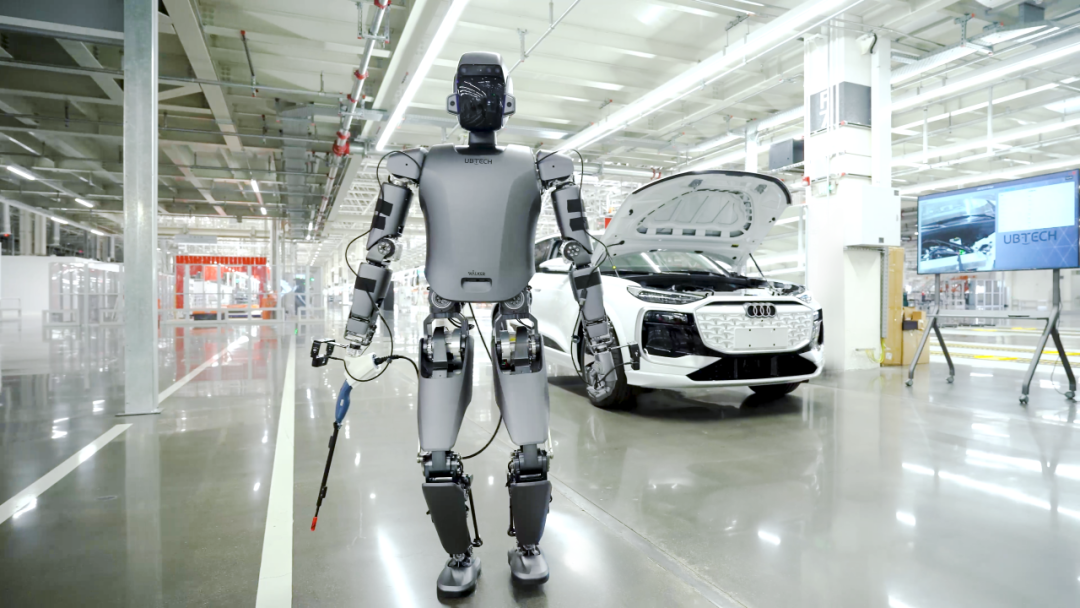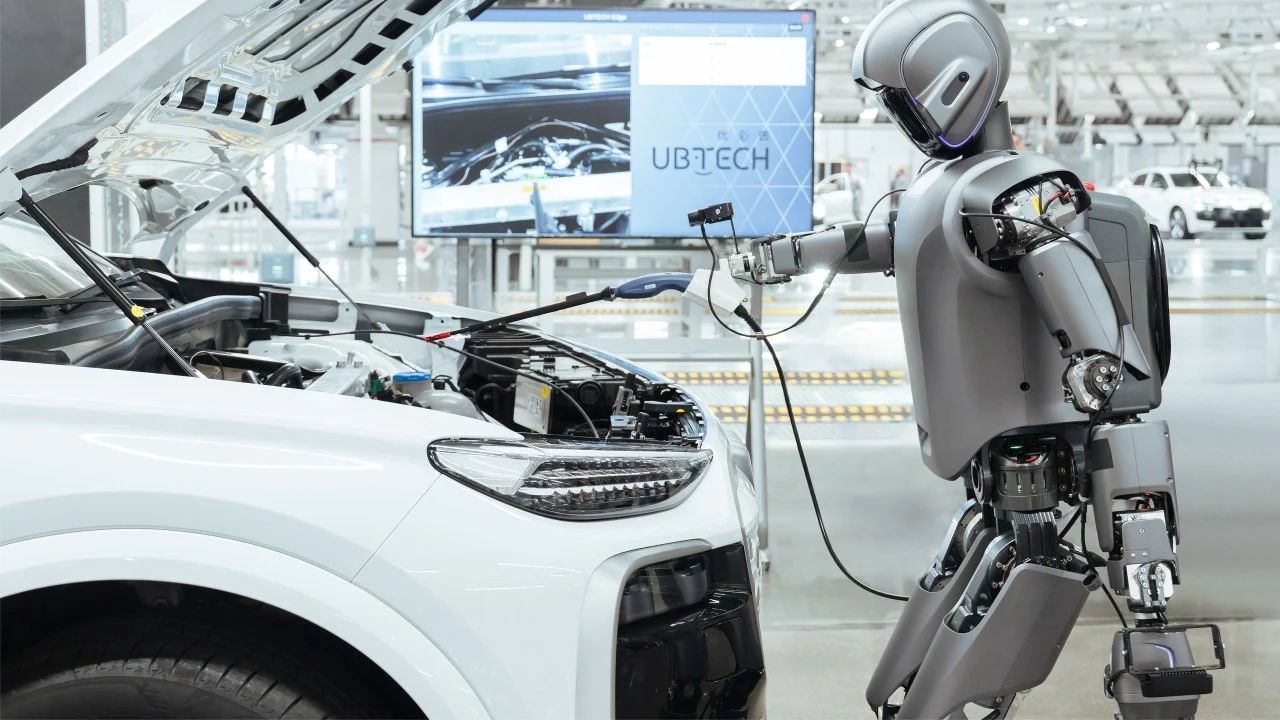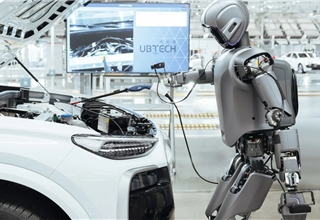Audi FAW NEV Integrates UBITECH’s Humanoid Robot into Manufacturing Process
Beijing (Gasgoo)- Audi FAW NEV Company has recently introduced the humanoid robot Walker S1, developed by UBITECH, at its advanced manufacturing base in Changchun, Jilin Province. This marks a significant milestone as the first time a humanoid robot has been integrated into Audi’s global production system.

Photo credit: UBITECH
The primary task of the robot is to conduct key quality inspection processes, particularly air conditioning leak detection. The collaboration between Audi FAW NEV and UBITECH aims to enhance Audi’s smart manufacturing strategy, with Walker S1 being the first humanoid robot deployed on a luxury car production line globally.
The integration of humanoid robotics addresses a critical industry challenge by automating air conditioning refrigerant leak detection, minimizing the need for manual labor in potentially hazardous environments. This innovation ensures worker safety and operational efficiency.

Photo credit: UBITECH
Walker S1 offers a groundbreaking approach to quality inspection with its specialized end-effector and precision motion control technology. The robot achieves exceptional operational accuracy at a millimeter level and rapid visual recognition under 70 milliseconds.
Weighing 76 kg and standing 172 cm tall, Walker S1 boasts a carrying capacity of up to 15 kg while maintaining stability in movement. Its core strengths lie in adaptive motion control for navigating complex terrains, multimodal sensing for reliable operation in challenging conditions, and robust structural reliability for continuous 24/7 performance.
Besides Audi FAW NEV, UBITECH’s Walker S series has gained traction among prominent manufacturers like BYD, Geely, and Foxconn, with a substantial order pipeline exceeding 500 units. At BYD’s Shenzhen plant, Walker S1 has significantly enhanced sorting efficiency by 120%, while at Lynk & Co’s Chengdu facility, its collaboration with autonomous forklifts has reduced warehouse processing time by 40% and lowered labor costs by 65%.







